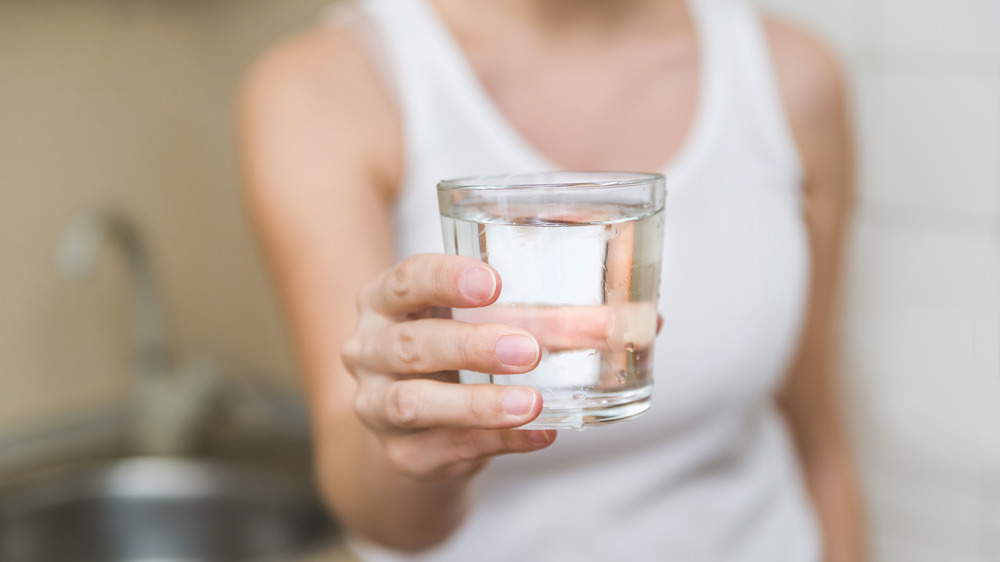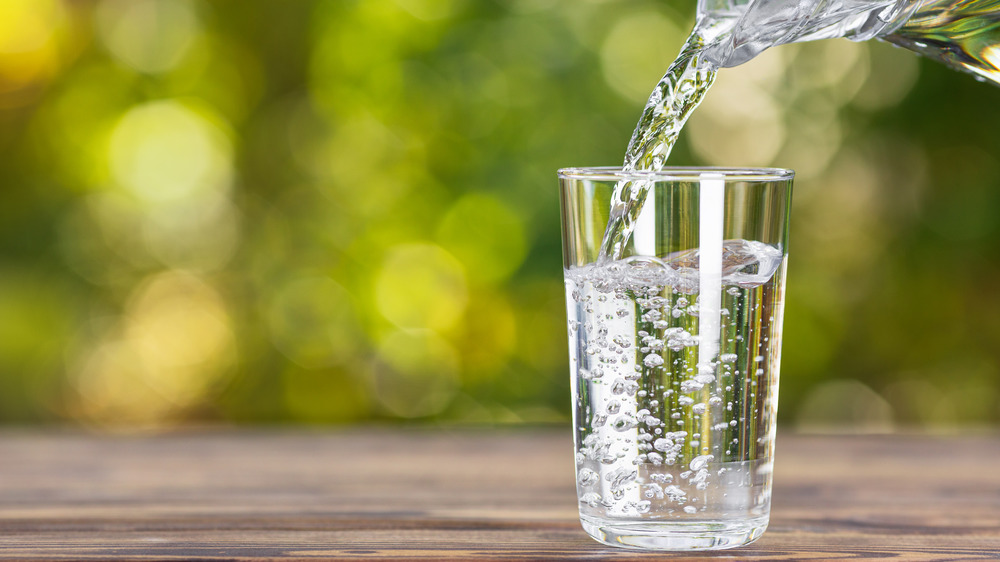The Real Risks You're Taking On The Water Diet
A water diet is exactly what it sounds like: skipping food in favor of simply sipping water for a certain period of time. It's essentially the same thing as doing a fast (not eating), but a water diet prioritizes hydration. And while it might help people shed pounds at first, it's unlikely to lead to any lasting weight loss. It could also have extremely dangerous consequences.
It's not really a diet at all: "It's just another name for fasting," registered dietitian Julie Upton told Today. And while some fasts are medically sound, doing a long fast in order to lose weight is rarely recommended. In general, experts agree that a calorie deficit of between 500 and 1,000 calories daily is reasonable for a healthy weight loss of one to two pounds per week, but fasting puts the body into a much higher caloric deficit (via Women's Health).
You also run the risk of hyponatremia, which is caused by drinking too much water with too little electrolyte — potassium, sodium, and magnesium — intake. A water diet can lead to this imbalance since it doesn't replace any electrolyte stores but encourages drinking a lot of water. Unfortunately, hyponatremia can be deadly if it isn't corrected. (Very few cases of this are reported, but a woman on a water and juice fast reportedly suffered brain damage due to hyponatremia in 2019, according to Live Science.)
But can a water diet help someone lose weight?
Unfortunately, any positive effects from just drinking water and skipping food are unlikely to last. Once you're done with the diet, you'll go right back to normal eating patterns. A fasting diet like this rarely promotes lasting change, Upton told Today. Most people will immediately return to normal levels of eating as soon as the water diet's duration is over and will quickly regain the weight lost during that time. This happens because of two primary reasons: First, you haven't actually made a change in your overall eating habits, and second, a water diet typically leads to weight loss caused by water weight dropping rather than real fat loss.
The only positive of the water diet is that it promotes staying properly hydrated throughout the day: something that you can do without skipping food at the same time. Sipping water regularly helps your body eliminate waste and flush out toxins and leaves you feeling fuller and less likely to overeat at meals (via the Mayo Clinic).
If you're hoping to lose weight, a water diet isn't the way to go: Focus on making long-term, steady change rather than trying diets that promise a quick-fix solution. If the idea of fasting is intriguing to you, consider intermittent fasting – eating within a shortened time window — instead.


